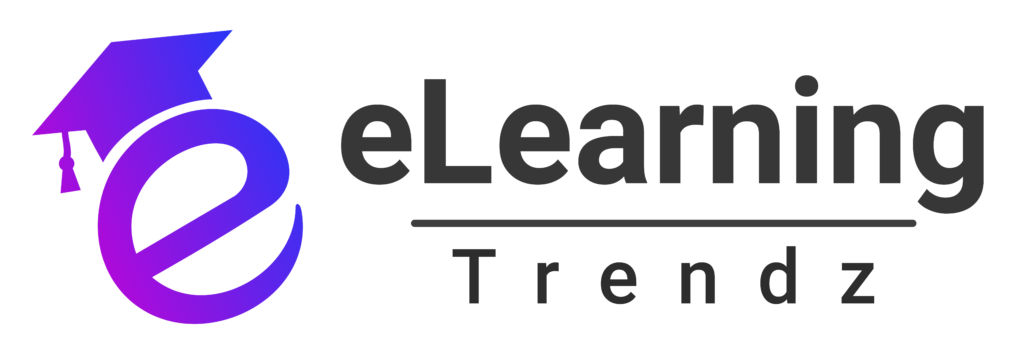Small businesses often face unique challenges when it comes to providing effective training to their employees. Budget constraints, limited resources, and a lack of dedicated training teams can make it difficult to implement traditional learning programs. However, a free Learning Management System (LMS) can provide a cost-effective solution that helps small businesses enhance employee skills, boost productivity, and stay competitive in the market. In this blog, we’ll explore how free LMS platforms can benefit small businesses, the features they offer, and how they can be implemented effectively.
Start Scaling Your L&D Today with Free Tools
Unlock the Potential of Free Tools to Revolutionize Your Learning Strategy!
What Is an LMS and Why Do Small Businesses Need One?
An LMS, or Learning Management System, is a software application designed to administer, track, report, and deliver online training programs. For small businesses, implementing an LMS can be a game-changer, especially when they need to train employees efficiently without breaking the bank. Free LMS platforms offer small businesses the opportunity to provide comprehensive training without the hefty price tag, allowing businesses to upskill their workforce, improve compliance, and enhance overall performance.
But why exactly do small businesses need an LMS? Here are a few reasons:
- Cost-Effective Training: Traditional training programs can be expensive, especially when considering the costs of in-person training, materials, and travel. Free LMS options allow businesses to provide training without these additional costs.
- Scalability: As your business grows, so will your training needs. An LMS can scale with your business, allowing you to add new courses, track progress, and manage employees easily.
- Employee Engagement: Engaging training programs help employees retain knowledge and stay motivated. An LMS can offer interactive, engaging learning experiences that traditional methods cannot match.
Key Features of Free LMS for Small Businesses
Free LMS platforms come with a range of features designed to streamline the training process for small businesses. These features often include:
- Course Creation: Many free LMS options allow businesses to create their own training content or use pre-built courses. This flexibility ensures that training is relevant and tailored to the specific needs of the business.
- Tracking and Reporting: Tracking employee progress and performance is crucial. Free LMS platforms often include tools for monitoring learner progress, assessing knowledge retention, and generating reports to measure success.
- Accessibility: A free LMS provides easy access to training materials from any location. This is particularly important for small businesses with remote or hybrid teams.
- User-Friendly Interface: Free LMS platforms are designed to be intuitive, making it easier for both administrators and employees to navigate the system.
- Mobile Compatibility: With the rise of mobile devices, mobile-compatible LMS platforms allow employees to access training materials anytime, anywhere.
🚀 Ready to See Paradiso LMS in Action?
Let's show you how Paradiso LMS can work for you.
🎯 Get a Free LMS NowHow Free LMS Can Help Small Businesses Improve Training
1. Cost Savings
For small businesses, the cost of training can be prohibitive. Traditional methods, such as in-person workshops, are often expensive, requiring investment in venue space, instructors, and materials. A free LMS provides a cost-effective alternative by offering online training solutions with no upfront fees. This allows businesses to redirect funds toward other growth initiatives, while still ensuring employees receive top-notch training.
2. Customizable Learning Paths
Every business has unique training needs, and a free LMS allows businesses to create personalized learning paths. By customizing the training experience, small businesses can ensure that their employees focus on areas relevant to their roles. Whether it’s compliance training, technical skills, or soft skills development, a free LMS provides the flexibility to deliver targeted learning experiences.
3. Better Employee Engagement and Retention
In today’s fast-paced business environment, employee engagement is key to retention. A well-structured training program can help keep employees motivated and focused on their personal growth. With features like gamification, quizzes, and interactive content, free LMS platforms make learning more engaging and enjoyable. Engaged employees are more likely to stay with the company, reducing turnover rates and recruitment costs.
4. Easily Track Employee Progress
Tracking employee progress is essential for understanding the effectiveness of training programs. Free LMS platforms offer detailed reporting features, allowing managers to monitor how well employees are performing and identify areas for improvement. This data can be used to adjust training strategies, provide additional support, and ensure that training objectives are met.
Best Free LMS Platforms for Small Businesses
- Paradiso Free LMS: Paradiso offers a powerful, cloud-based Learning Management System with built-in course authoring, AI tools, and preloaded course catalogs — all free for life. It’s easy to use, requires no technical setup, and is ideal for businesses of any size looking to start training instantly.
- Moodle: Moodle is one of the most popular open-source LMS platforms. It offers a range of features, including course creation, reporting, and customization. While it’s free, it requires hosting, which may require some technical expertise.
- TalentLMS: TalentLMS offers a free tier that allows businesses to create and manage training programs for up to 5 users. It’s user-friendly, mobile-compatible, and supports multimedia content.
- Google Classroom: Google Classroom is a simple, free LMS designed for educators, but it can also be used by small businesses for employee training. It integrates well with Google Workspace and allows easy sharing of resources and communication with employees.
- LearnDash: LearnDash is a WordPress plugin that offers powerful LMS features. While the free version is limited, it provides a great starting point for small businesses looking to create and sell courses.
- Chamilo: Chamilo is another free open-source LMS that is easy to use and offers excellent tracking and reporting features. It is ideal for businesses looking for a customizable platform with no upfront costs.
Empower Your Team with a Free LMS — Train Smarter, Spend Less!
Unlock Cost-Effective Learning — Start Training Your Workforce Today!
Challenges of Free LMS Platforms
- Limited Features: Free versions of LMS platforms may lack some advanced features, such as extensive customization, advanced analytics, or integrations with third-party tools.
- Technical Support: Free LMS platforms may not offer the same level of customer support as paid solutions, which could be problematic if technical issues arise.
- Scalability: As your business grows, the limitations of free LMS platforms may become apparent. You might need to upgrade to a paid plan for additional features and support.
Conclusion
In conclusion, free LMS platforms provide small businesses with an affordable solution to offer high-quality training programs to their employees. These platforms offer essential features such as course creation, tracking, reporting, and mobile compatibility, making it easier for businesses to train employees and enhance overall performance. While free LMS platforms have some limitations, they still offer a great starting point for businesses with budget constraints. As your business grows, you can always upgrade to a more advanced platform to meet your evolving training needs.
By embracing free LMS solutions, small businesses can improve employee engagement, productivity, and retention, all while staying within their budget.
Ready to get started? Explore the best free LMS platforms for your small business and start training your team effectively today!















